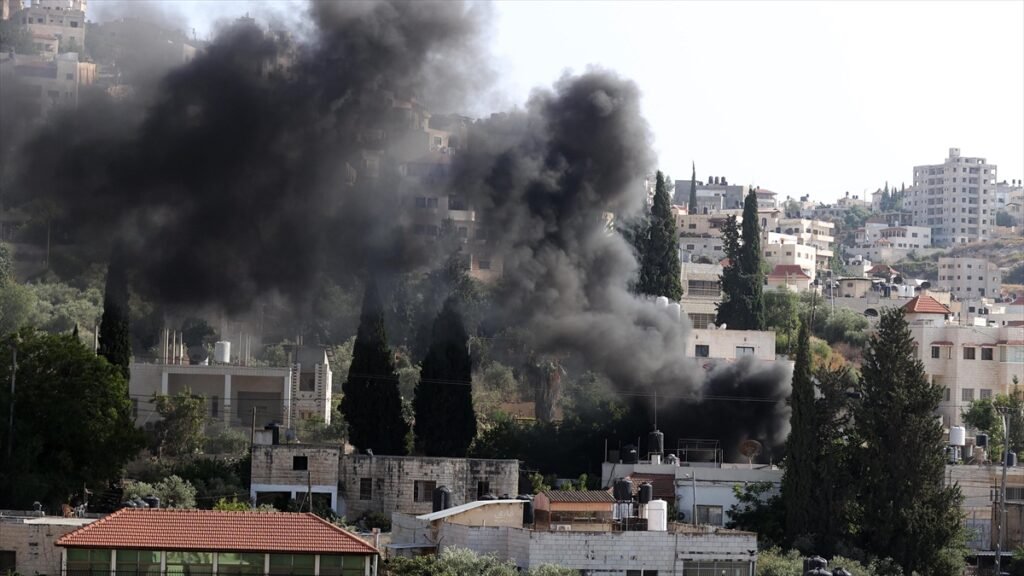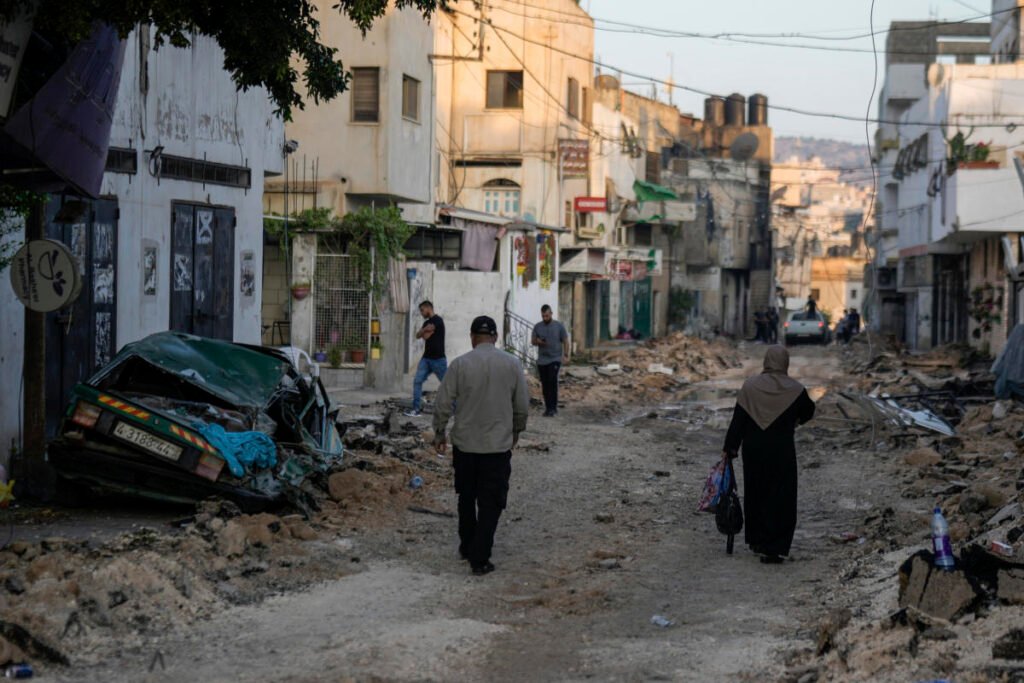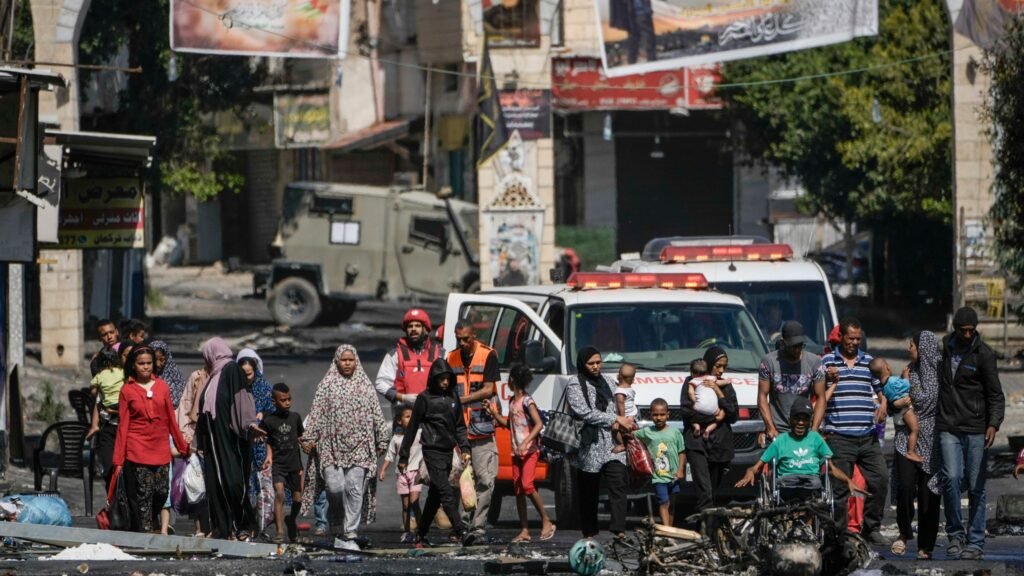The Resilience of Palestine: A Struggle for Justice Amid Intensified Conflict
By July 2023, the Israeli-Palestinian conflict continues to dominate headlines, with recent escalations underscoring the entrenched and violent nature of this long-standing struggle. The beginning of July saw one of the most devastating Israeli military operations in years, specifically targeting the Jenin refugee camp. On July 3, Israeli forces launched a large-scale offensive against the densely populated West Bank camp, involving airstrikes, armored bulldozers, and a brigade of two thousand soldiers. This operation left a devastating impact on the ground, further intensifying the already precarious situation in Palestine.

The Raid on Jenin: A Cycle of Violence and Resistance
The two-day raid on Jenin, one of the largest in recent memory, resulted in the deaths of twelve Palestinians and left over a hundred injured. This military action raised the number of Palestinians killed by Israeli forces in 2023 to 133, demonstrating a persistent pattern of violence in the West Bank. Israel justified the operation by claiming it targeted “terrorism,” but this narrative dismisses the broader historical and political context of the Palestinian struggle for freedom. For decades, the Jenin camp has symbolized Palestinian resistance and resilience, a place where people have fought to preserve their identity and their land.
For Palestinians, “resistance” is not just a political stance but a means of survival. The Israeli occupation, with its systemic physical, psychological, and economic violence, has left Palestinians with few options but to resist. Despite Israel’s efforts to label these acts as terrorism, Palestinians see their resistance as a legitimate fight for justice and self-defense against an occupying force that denies them basic human rights. The latest raid on Jenin further exemplifies the ongoing effort by Israeli forces to suppress Palestinian fighters, yet these efforts only deepen the commitment of Palestinians to their cause.

The Persistence of the Nakba: Generational Struggles for Freedom
The events in Jenin echo the broader tragedy of the Nakba, the forced displacement of Palestinians that began in 1948. Many of Jenin’s current residents are descendants of families displaced during the Nakba, and the raid has reawakened painful memories of this ongoing tragedy. As Israeli forces destroyed homes and infrastructure, forcing families to flee yet again, the images of displacement became an eerie reminder of the enduring effects of the Nakba. Despite these renewed efforts to uproot them, Palestinians in Jenin—and across the West Bank—have refused to surrender their connection to the land. Their struggle has become a testament to their resilience, passed down from one generation to the next.
Systematic Oppression and the Role of International Actors
International responses to the Israeli-Palestinian conflict remain fractured, with many global powers continuing to support Israel’s actions through military aid and diplomatic backing. This complicity has emboldened the Israeli state to continue its occupation policies with impunity, confident that international actors will not hold it accountable for its violations of international law. Despite growing international solidarity movements and calls for Palestinian rights, there has been little meaningful intervention from major global actors to address the root causes of the conflict.
Israel’s actions in Jenin, framed under the guise of “security,” serve as collective punishment for Palestinians at large. Using heavy equipment to destroy civilian infrastructure, as seen during the recent raid, has little strategic justification beyond the intent to inflict widespread harm on the Palestinian population. These operations not only destroy lives and livelihoods but also seek to break the spirit of resistance. However, as history has shown, such tactics only serve to strengthen Palestinian resolve.
A Future of Resistance: The Unbroken Spirit of Palestine
The people of Jenin, despite the destruction they have witnessed, remain unbroken. The recent attack has not deterred their commitment to fight for freedom, and many believe it will inspire a new wave of resistance across Palestine. The children who lived through the siege, much like those who experienced previous raids, are growing up in a landscape defined by conflict and occupation. Tragically, many of these young individuals may one day take up arms, driven by the same desire for justice and freedom that has motivated their elders.
For Palestinians, the struggle is not simply a matter of politics; it is a fight for survival, identity, and dignity. As the Israeli occupation continues to deepen its grip on Palestinian land and lives, the international community must recognize the need for a just and lasting resolution. This means not only condemning violence but also addressing the underlying causes of the conflict, including the illegal occupation, systemic discrimination, and the denial of Palestinian rights.
The Path Forward for Palestine
The events of July 2023 serve as a stark reminder of the ongoing nature of the Palestinian struggle. Jenin, once again the epicenter of resistance, stands as a symbol of the broader Palestinian fight for sovereignty and justice. As Israel continues its operations, the resolve of the Palestinian people remains unwavering. The international community must now choose whether to continue supporting the status quo or to advocate for meaningful change, one that recognizes the rights and humanity of the Palestinian people.
The future of Palestine will be shaped by the resilience of its people and the global community’s response to their plight. The time has come to listen to their voices and to work toward a solution that prioritizes justice, equality, and the right to self-determination. Only then can the cycle of violence end, and a peaceful, just future be envisioned for all who live in the region.


